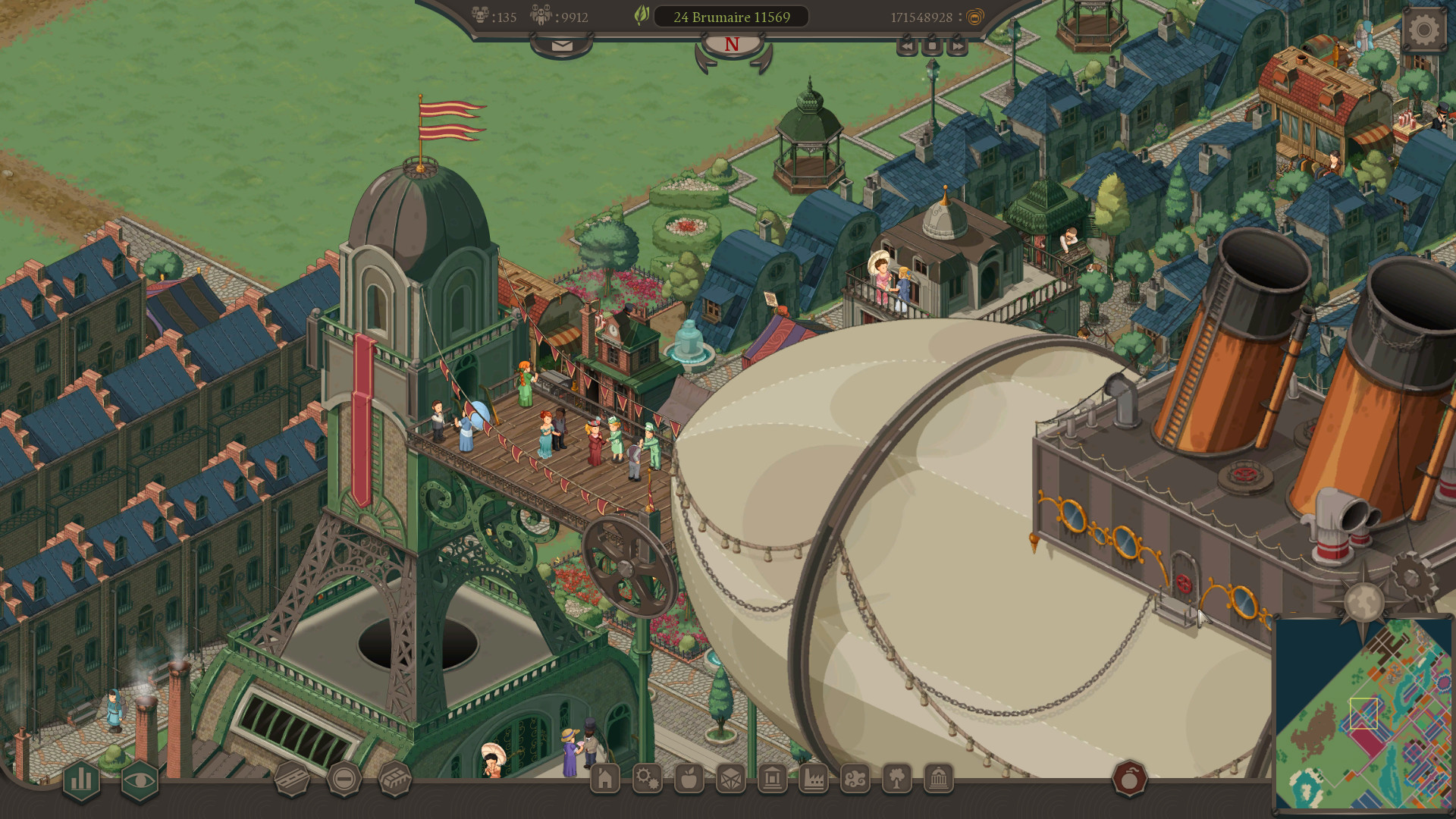Our Verdict
Lethis: Path of Progress is a very pretty city-building game, but light on strategy and frustratingly linear.
PC Gamer's got your back
What is it? A steampunk game based on 1990s city-building simulations.
Influenced by: Caesar (the game) and Boneshaker (the book)
Reviewed on: Windows 7 Ultimate, Core i7, 4GB RAM, NVIDIA GeForce GT 555M
Play it on: Intel Core i3, 2GB RAM, budget graphics card (does not support Intel Integrated Graphics)
Alternatively: Cities: Skylines
Copy protection: Steam
Price: $20/£15
Release date: Out now
Publisher/Developer: Triskell Interactive
Multiplayer: None
Link: Official site
Lethis: Path of Progress bills itself as a steampunk fantasy 'city-building' strategy game. I wouldn't call it that, although it's true—technically—that you can, and do, build cities. (Brass ones! Steam-powered ones!) Instead, I'd describe Lethis: Path of Progress as a management sim, in the worst possible way. This is a game about spinning plates.
Before I let loose with my litany of gripes, though, I should stress that Lethis: Path of Progress's art is very, very special. If I could recommend any game on aesthetic alone, this would be the one. It's splendidly detailed and sweet, and cartoonish, with all these teensy-tiny cobblestones everywhere. Professor Layton would live here. A Miyazaki movie would be filmed here.
The first time I encountered an elaborate new animated model, the effect was breathtaking. That initial magic is eventually dampened—there are maybe too many hot air balloons, too many giant silkworms, all strangely static and unchanging—but the first time, oh boy.
Another strength is its musical score—which is fortunate, since the player will invariably be hearing these ditties a whole lot. Really, it's some of the best game music I've ever heard, striking this perfect ineffable chord between Joe Hisaishi and George Gershwin.
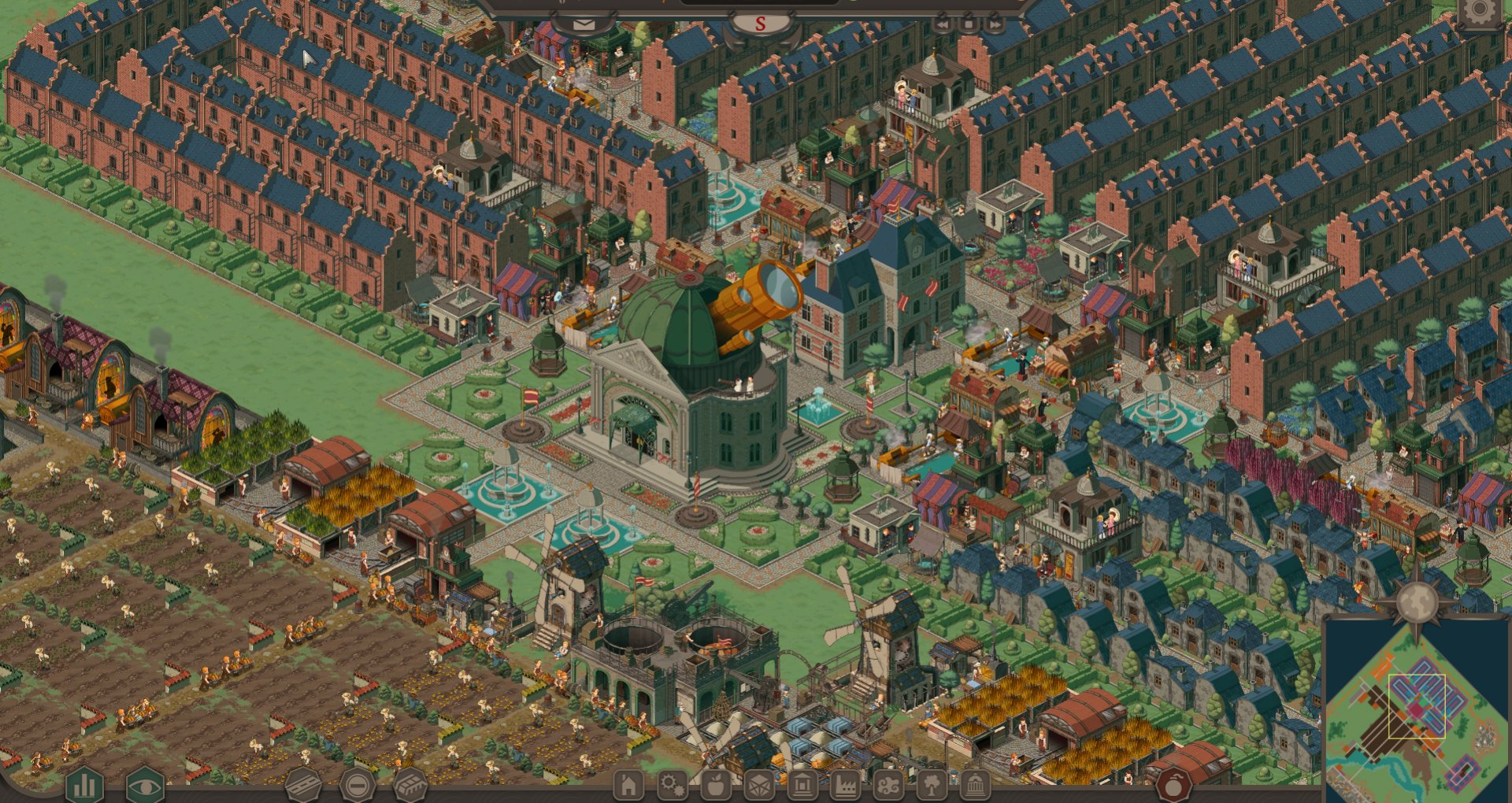
A wrench in the gears
My issues with Lethis are myriad, however, and they were present from the get-go. I inexplicably sank entire hours into the first tutorial, replaying the stage over and over until I'd finally completed it; this unlocked the second tutorial. There are, in all, five tutorial stages. When I realized this—that there are five tutorials—I felt like taking a hammer to my laptop and never looking back.
There I was, trapped in the third tutorial, when it occurred to me that something—anything—might finally happen onscreen, if only I'd build a warehouse. Aha! No sooner had I planted a warehouse did my adviser reappear in a pop-up window. Thank God! My adviser informed me I could at long last use 'filters,' but she didn't elaborate. "This isn't really my field of interest," she said (approximately), "and now I'll leave you to it." And then she vanished.
I stared at my monitor quizzically. OK. What is a filter; why should I ever want to use one; where, even, are 'filters' in the UI? (To my knowledge, the game never even tells you how to rotate the map. But you can rotate the map! It's in the UI.)
This single experience functions as synecdoche for the entirety of Lethis. There's a whole lot of "leaving the player to it!" which is to say, abandoning the player in her time of need. Rather than stoking a sense of the 'thrill of discovery'—the way a simulation like Cities: Skylines might—Lethis instead encourages a profound sense of helplessness.
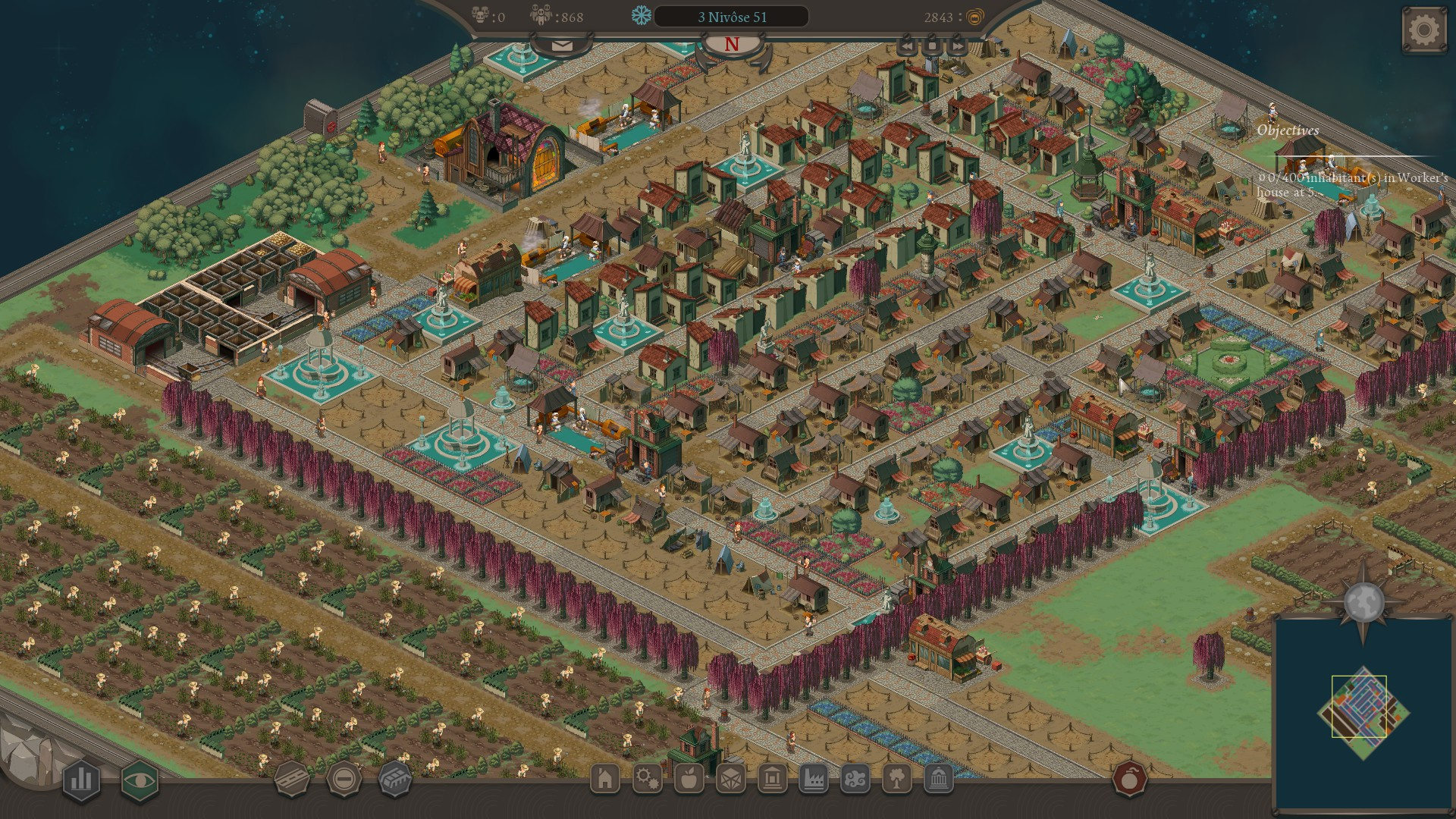
Although Lethis never held my hand or explicitly walked me through anything, it sure did have a lot to offer in the way of 'nag screens.' Lethis is the Gordon Ramsay of computer games: It is constantly yelling at the player. "Your city needs more workers, build additional houses!" it screams in a pop-up window. Need to build another warehouse? "You're missing workforce, don't build additional production buildings!" a pop-up will admonish.
It would be one thing if these pop-up nags were actually helpful or useful. In fact, if I kept following these instructions, I quickly lost.
Pro-tip from a Lethis survivor: You rarely need to build more houses. On the contrary, you need more people to move into existing ones; building additional housing will destroy any possibility of your tent city ever developing into an urban center, and you will therefore lose your campaign. In other words, what little in-game assistance Lethis does offer is lies. All of it, lies.
No player ever likes to feel cheated out of a hard-earned victory, and I am no different. Once I understood that Lethis's constant, unsolicited advice is untrustworthy, all my goodwill for the game went right out the window.
To my credit, I did eventually learn how to 'play' Lethis. By the time I'd 'solved' the game, though, I realized that Lethis is both deceptively simple and deliberately obtuse. At its worst, Lethis is willfully inscrutable: It withholds crucial information from the player, on purpose, presumably to conceal the game's mechanical shallowness. It manufactures mystique where there is none.
At the game's best—once the player stumbles onto enlightenment, finally penetrates these systems and rulesets—the game becomes an interminable grind. Lethis doesn't expect its player to strategize, only to learn the rules. The game loses its magic just as soon as it becomes playable.
The big secret Lethis tries to keep is, it's boring.
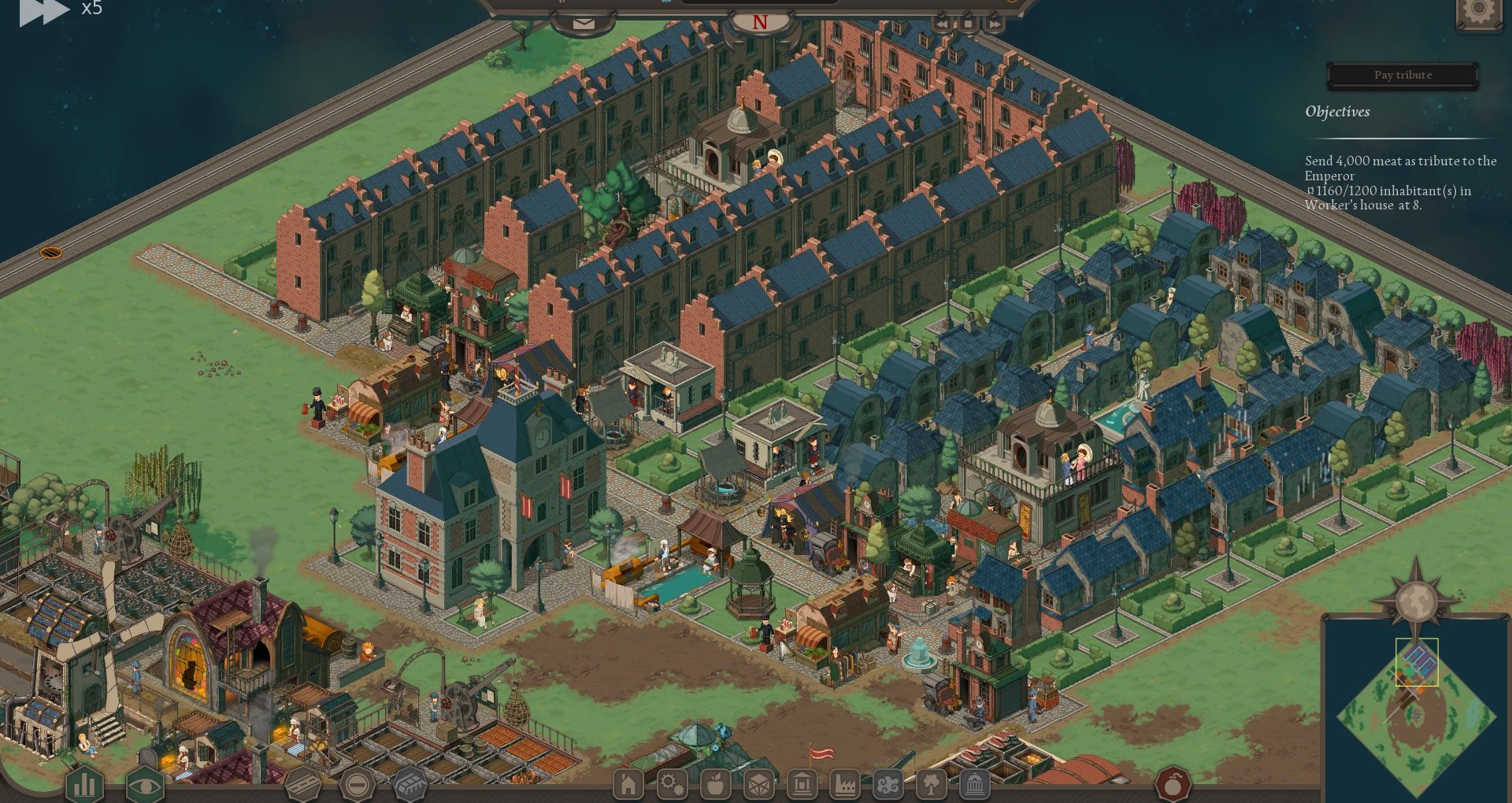
No ghost in the machine
I often found myself clicking, in panicked desperation, on every single individual building and structure, trying to understand where my perfect Jurassic Park had broken down. The culprit usually turns out to be something piddling—a small storefront isn't stocking fish, for whatever reason, or steam isn't making it all the way to a mine across the map, or the jeweler isn't receiving his shipments of gold, or, or, or...! (These problems always have the same single economic solution: Overproduce. Overproduce everything.)
In the end, Lethis: Path of Progress is less a city-builder than it is a puzzle game, sharing more in common with The Incredible Machine than with SimCity. Think of your city as an intricate contraption with constant moving parts: The only real goal is to keep the clockwork in motion just long enough to achieve a win state. Once you understand how to solve each campaign, there is no more game.
Or, OK, that last statement isn't entirely true. There is a ‘sandbox’ mode. Better still, once you've beaten any given campaign, the game lets you stick with a city afterward, keep going, expand its borders to the edges of the map. That's the one single concession Lethis makes to the player's sense of accomplishment and well-being; the rest is only so much confusion and grinding.
I'm flustered because, the truth is, I want to like Lethis. It's an old-school city sim with out-of-this-world production values, and I derive no great pleasure in discussing the failings of what is obviously an ambitious game developed on the backs of a skeleton crew. The game just wasn't ready for primetime; it needs both QA and TLC. (If the exact same team of developers were to ever reconvene for a sequel, I'd scope it out without hesitation.)
What we're left with, then, is a very beautiful idea of a game. Lethis absolutely has its niche—folks my age who have nostalgia for city-builders like Caesar and Pharoah seem to love it—and I think that's fine. Great, even: The game won't have any problem finding a fandom. For the rest of us, though, Lethis is rote, mechanical, oddly linear. It never rewards creative solutions, only procedural ones. The frustrating majority of the game is figuring out its gnostic—albeit ultimately flimsy—taxonomy of rules, and the tacking-on of win/lose scenarios does nothing to improve this.
Lethis has gorgeous art and a terrific musical score, and it aspires to great heights. But the game underneath isn't fully baked, and the result is only an interesting experiment in frustration—when it isn't outright boring.
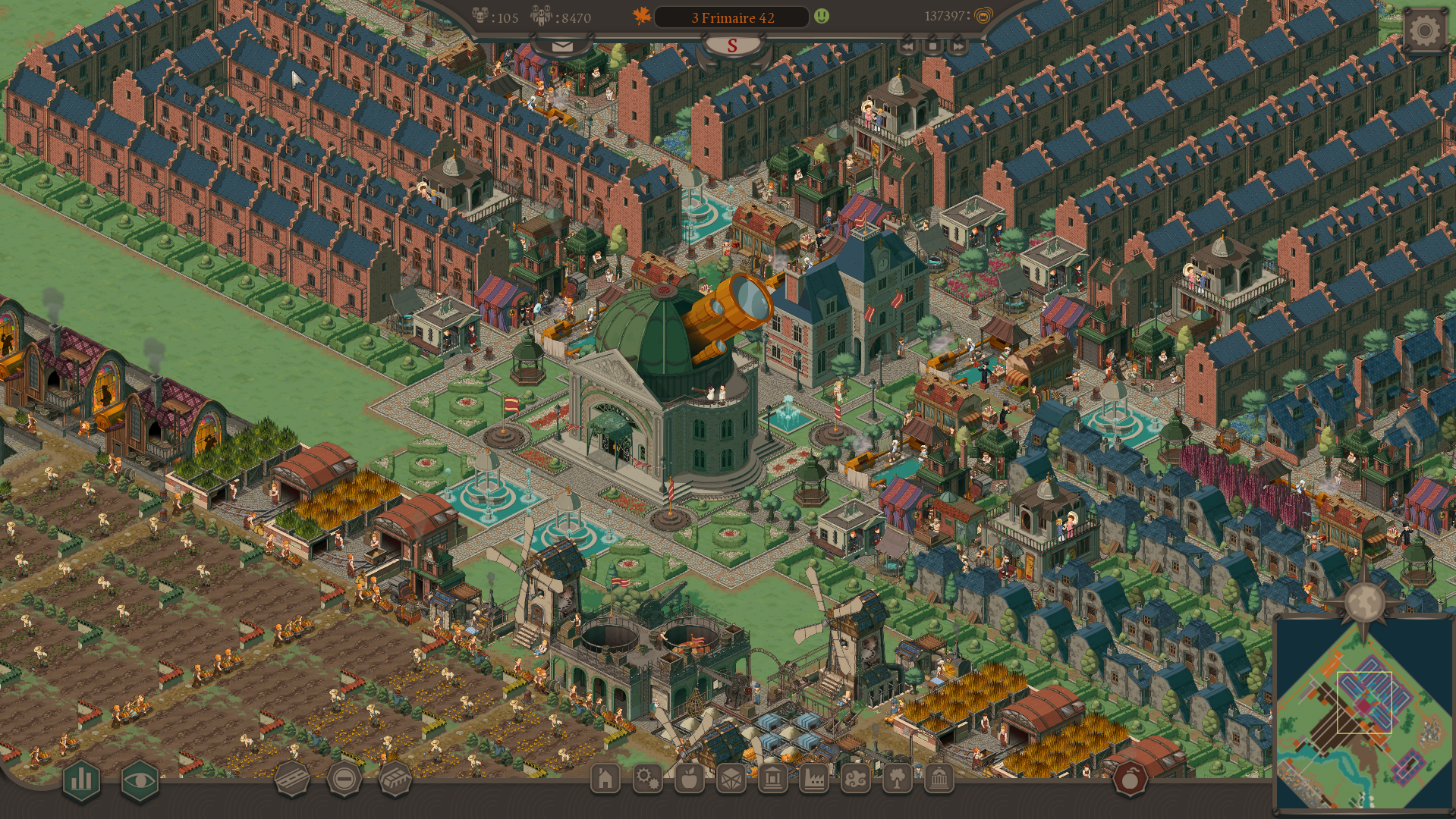
You can make an observatory in just four steps! Each 'step' is comprised of 19 individual steps. I am not joking.
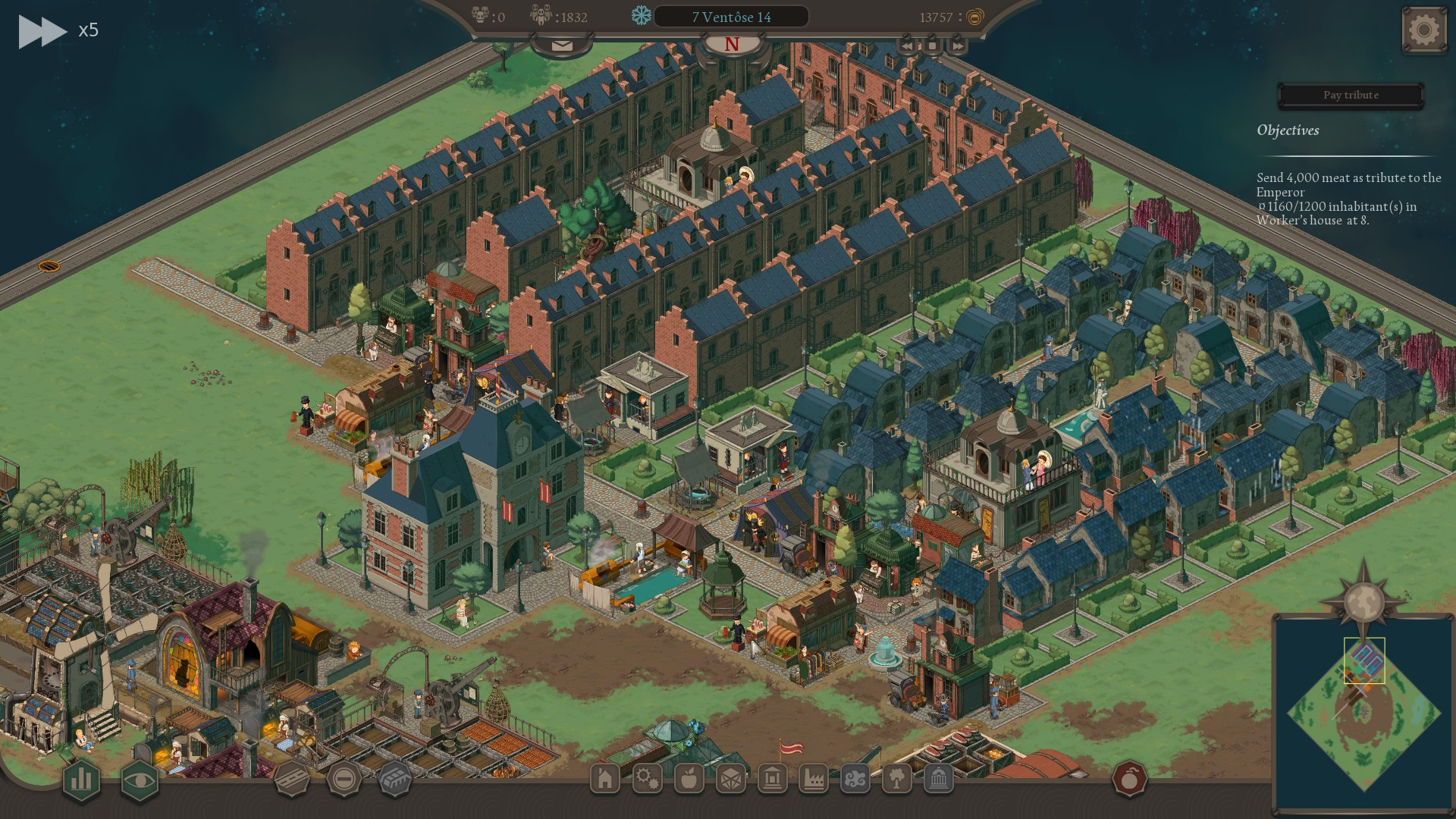
I spent an inordinate length of time trying to figure out why my city was developing at two different speeds.
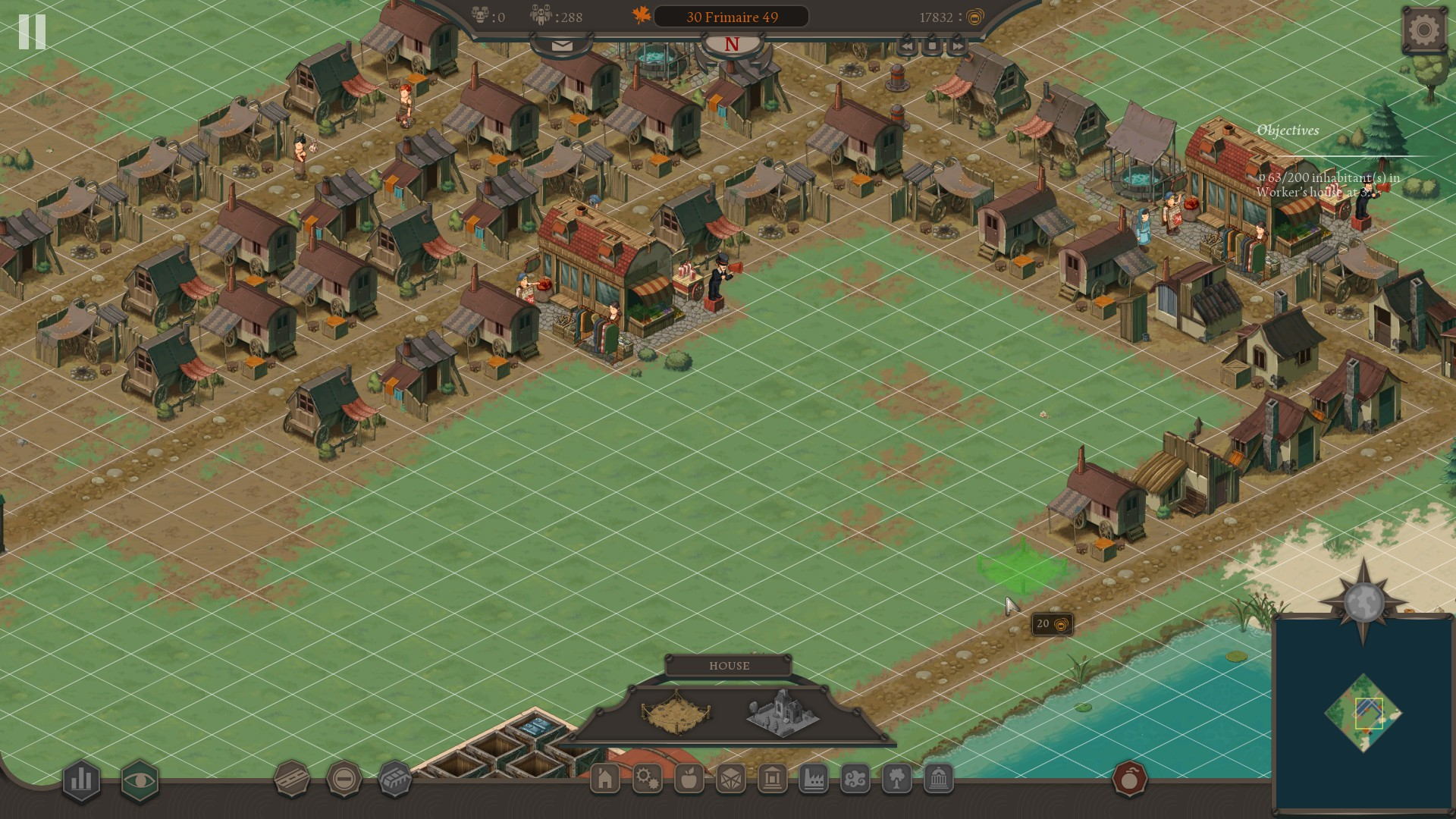
At any campaign's outset, the player is tasked with developing tents and caravans into a thriving urban center.
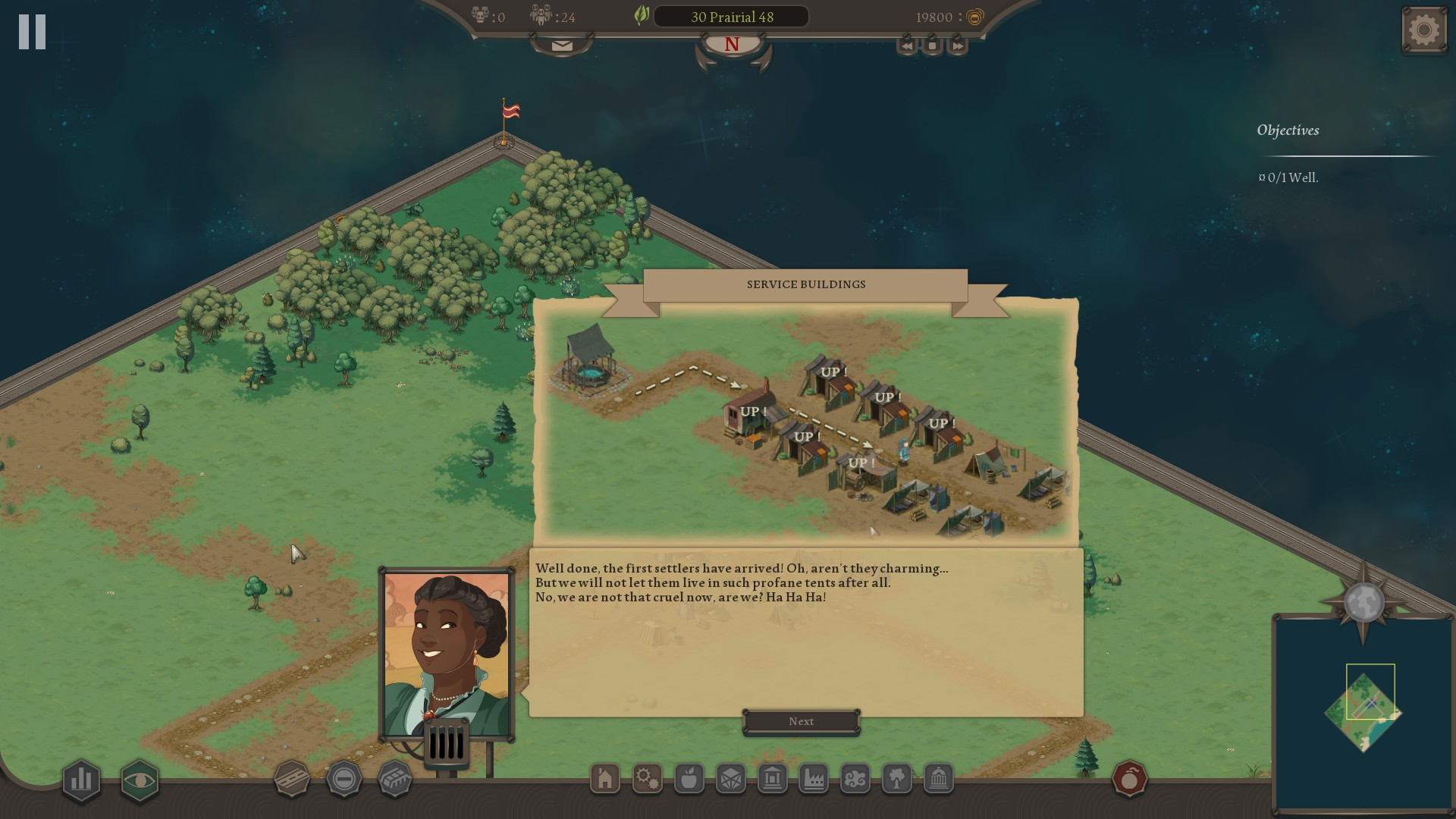
Well, we wouldn't want that for our citizens! Ha ha ha!
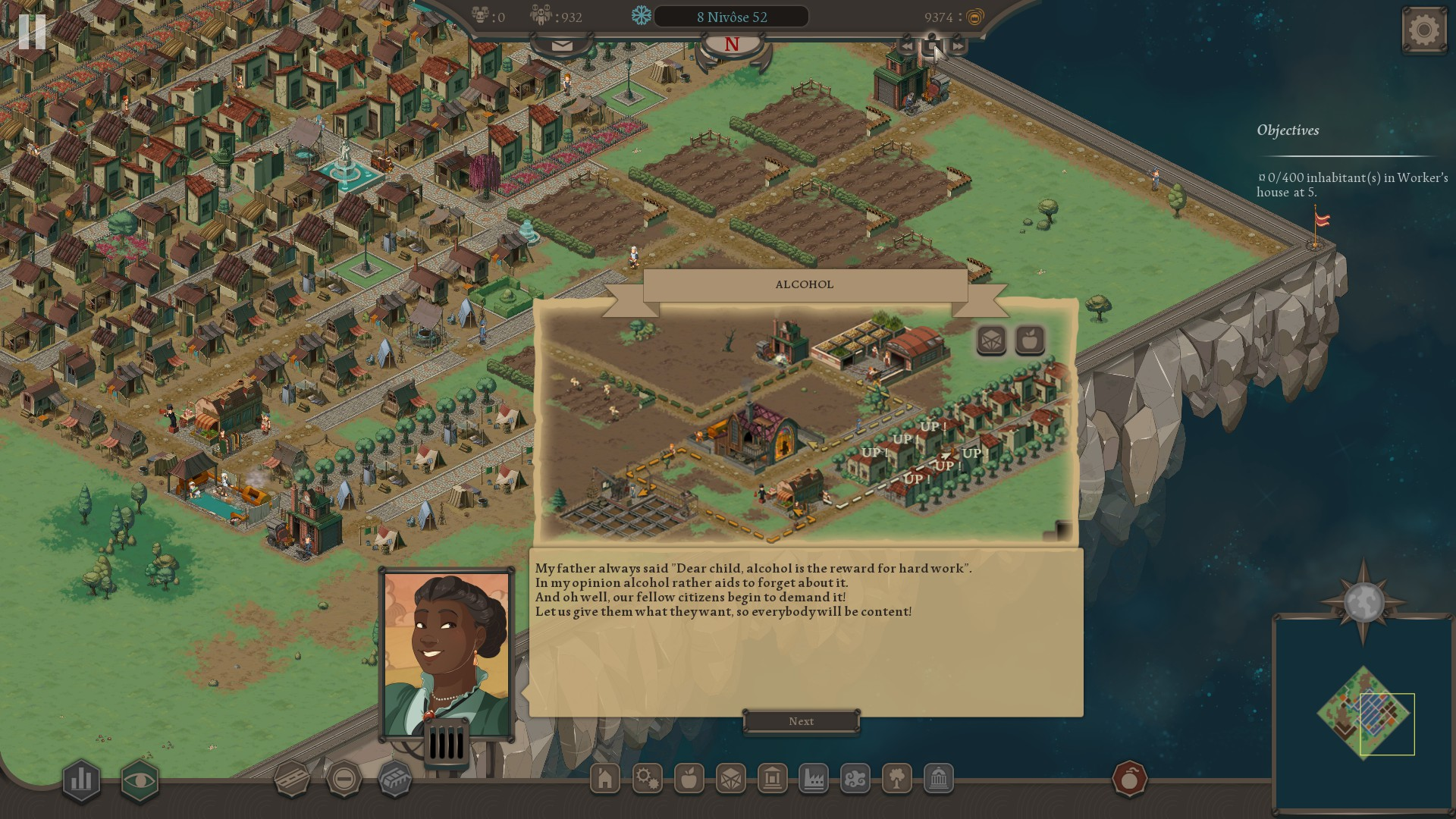
Just what we need: alcohol. Lots and lots of alcohol.
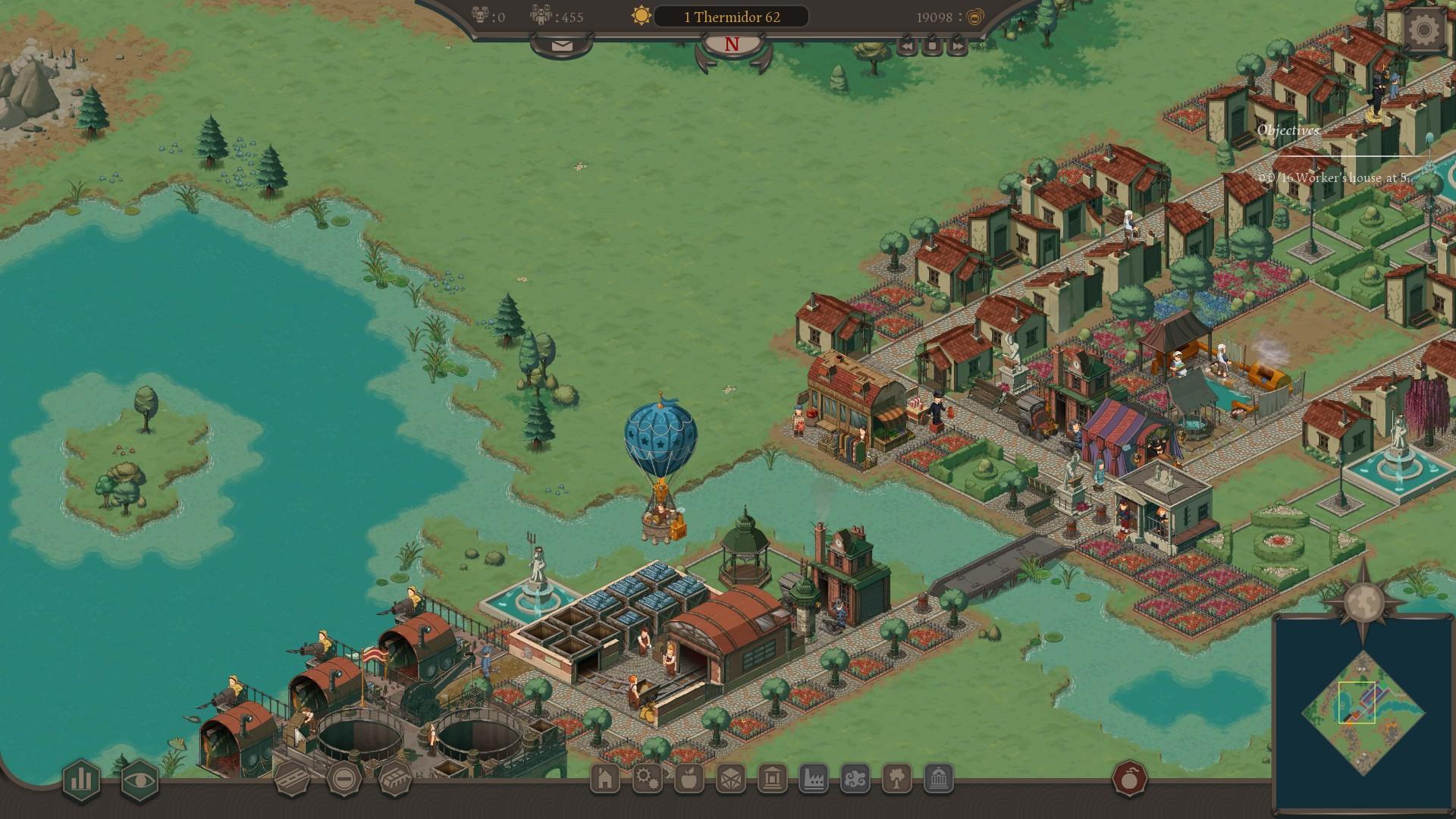
Lethis is mostly a game about trade agreements; consumer goods travel by motorized hot-air balloon.
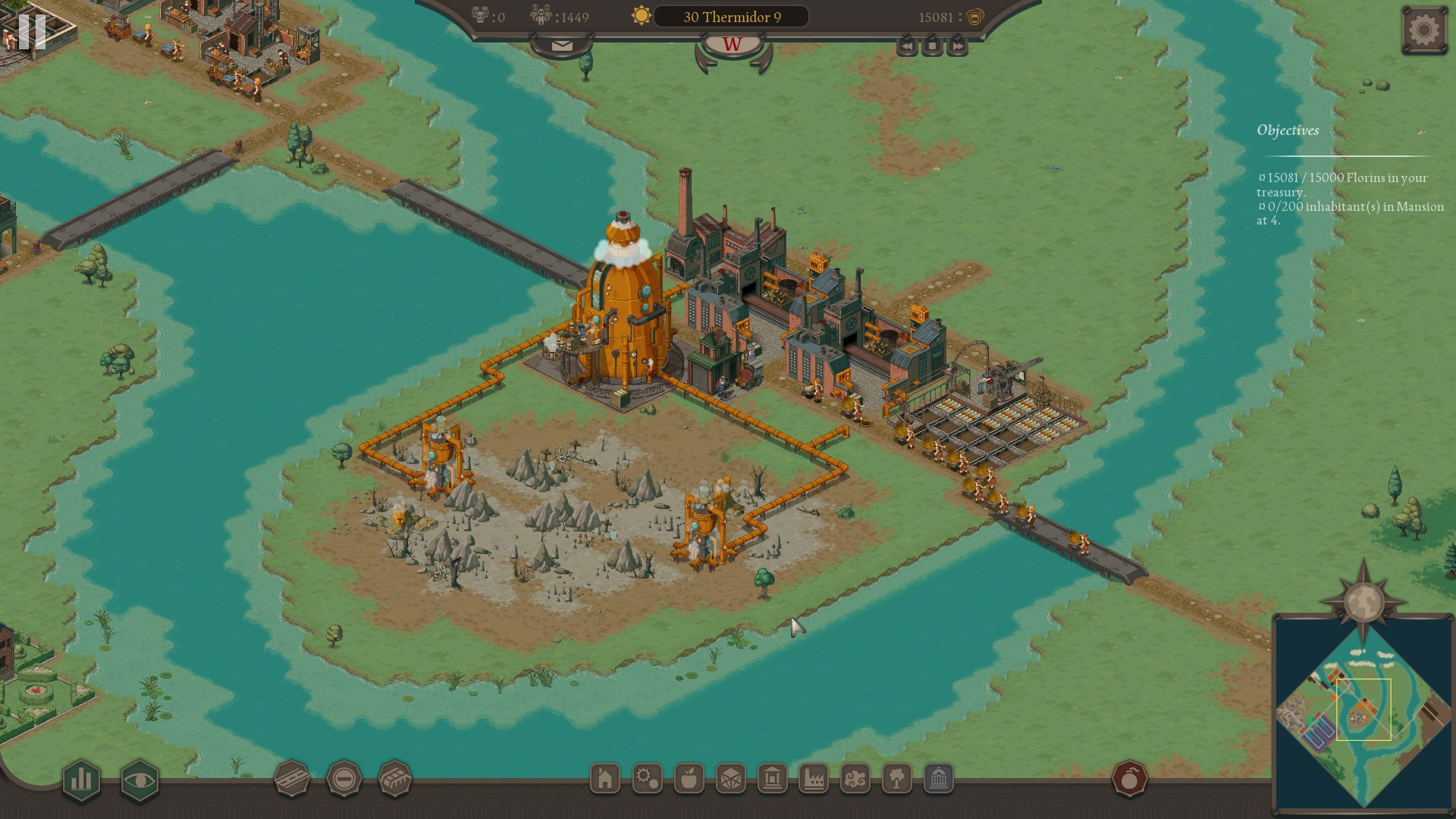
The littlest brass doohickeys pump steam into the largest brass doohickey, and workers transport these ‘steam capsules’ over to warehouses? Look, that’s how the game works, I don’t know.
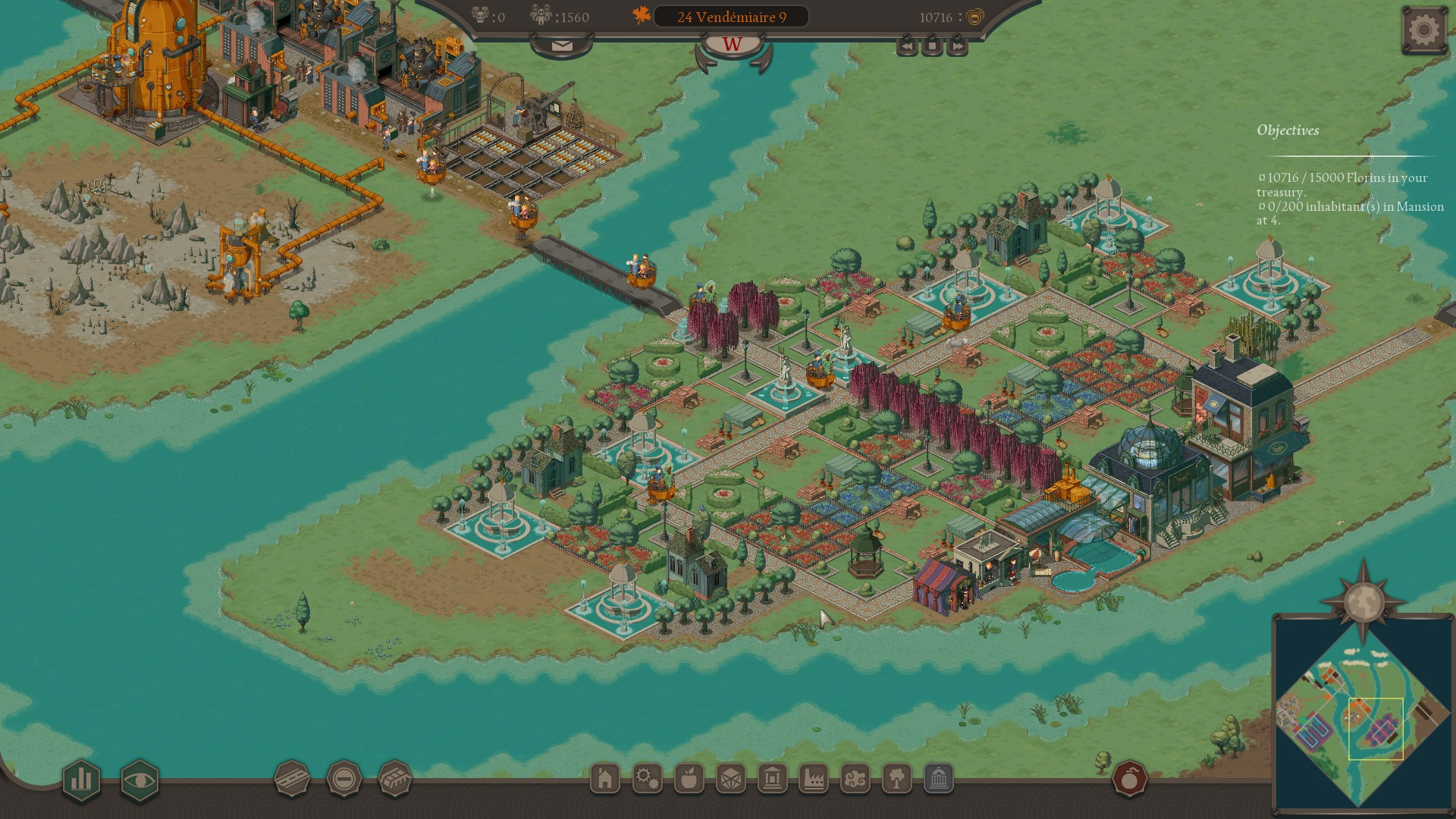
Not to spoil the plot, but Lethis is a Fritz Lang movie in disguise. Here are a bunch of rich jerks in flying cars, about to move into their planned, rich-jerk housing development.
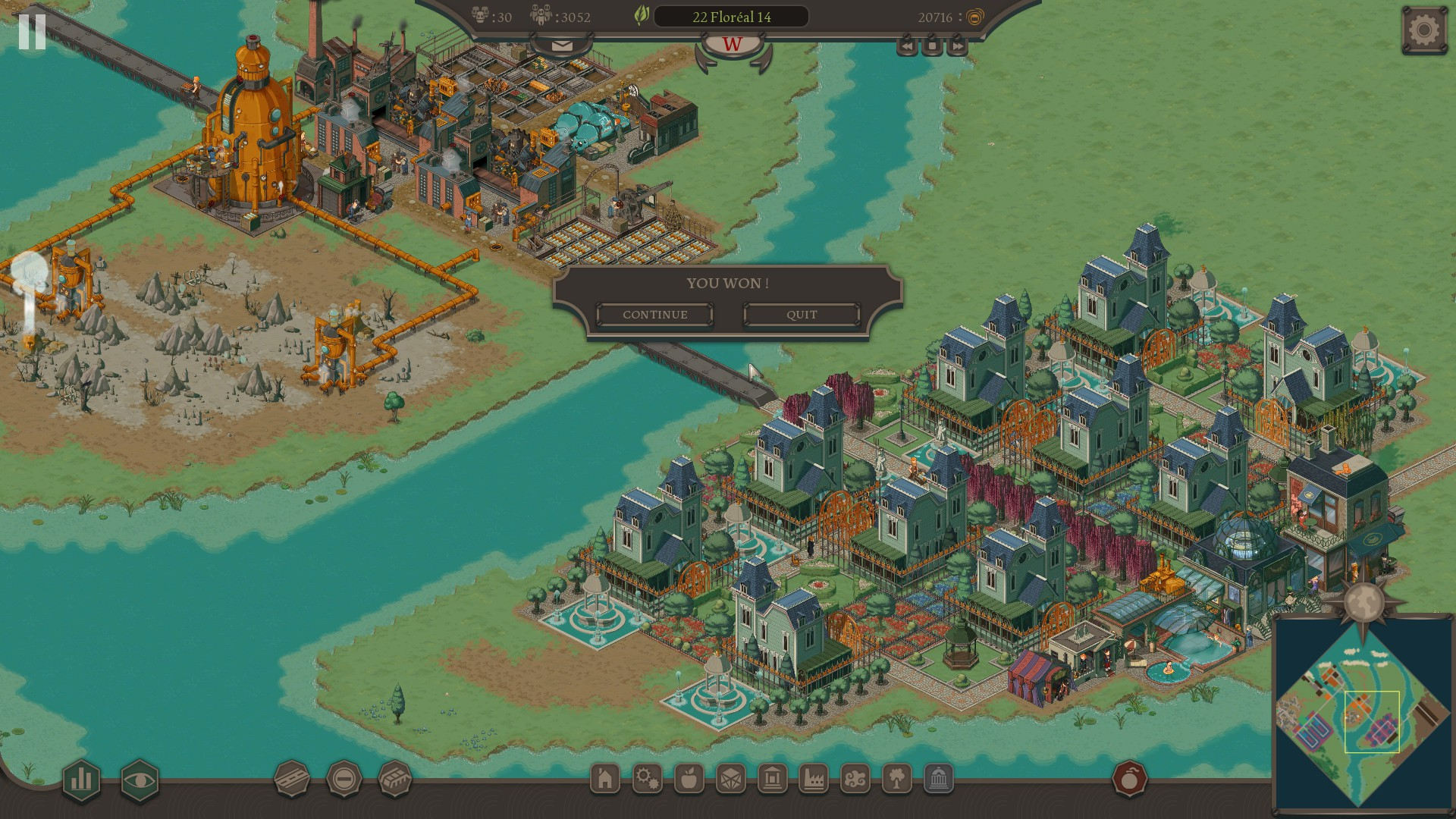
Look! The rich jerks moved into their mansions after all! I won!
Lethis: Path of Progress is a very pretty city-building game, but light on strategy and frustratingly linear.
